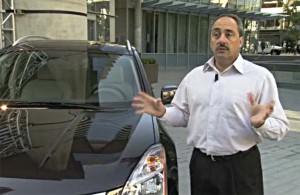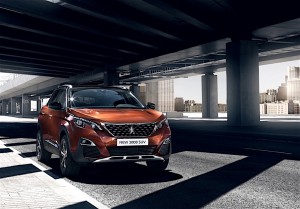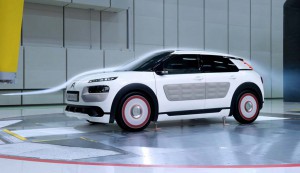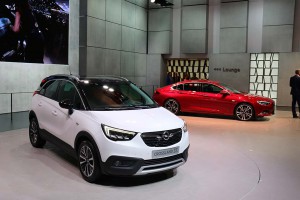With the launch of the new Travelcar car-sharing service in Los Angeles, French automaker PSA has made its first tentative step back into the U.S. market since the Peugeot brand pulled up stakes in 1991.
The modest project is part of a “three-phase approach” that will eventually see PSA start selling cars in the United States, Larry Dominique, an auto industry veteran and the new North American head of PSA operations, told TheDetroitBureau.com, in an exclusive interview.
How soon you’ll see any of the PSA brands on dealer lots – indeed, whether the French company will rely on a conventional distribution model in the U.S. – hasn’t been determined yet, Dominique cautioned. With the launch of Travelcar, PSA begins exploring a number of options that could eventually include the establishment of an American manufacturing presence.
“We now have an opportunity to look at the industry, look a sales and marketing, from a greenfield point of view,” Dominique explained during an hour-long telephone interview. “We’re taking a three-phase approach to coming back to the market because you can’t just take vehicles designed for Europe and plop them back into the U.S.”
The decision to launch with Travelcar – a partnership between that car-sharing service and PSA’s Free2Move subsidiary – is anything but random. Like a growing line-up of major manufacturers, the French carmaker is convinced there will be growing demand for non-traditional mobility services, such as car- and ride-sharing. Those new operations have been grouped together under the Free2Move brand.
(For more on the PSA story, Click Here.)
Initially, Travelcar will operate out of LAX, the busy Los Angeles airport. Travelers will be able to park for a reduced rate at the service’s lot. While on the road, their vehicles will be rented out to inbound travelers for about half the price of a conventional daily car rental service, a share of that money going to the owners.
“At some point, we will have the opportunity to put our own (PSA) cars into those mobility services,” said Dominique.
To get there, the French company will have to first take a number of steps. For one thing, it will have to decide which brand or brands to bring back to the U.S. It currently operates three marques: Peugeot, Citroen and DS. Last month, it also agreed to purchase the Opel and Vauxhall brands from General Motors.
“We haven’t chosen yet which brand we will bring back, but for now, we have talked about a single brand,” Dominique said. “We need to focus on building, selling and marketing a single brand, and adding a second brand would be a distraction.”
(Peugeot 3008 named European Car of the Year. Click Here for the story.)
By putting cars into the Travelcar service – which will expand to other locations around the U.S., PSA hopes to get some consumer insight that will help it decide not only which brand to bring back but how to go to market.
“One of the most exciting things,” said Dominique, “is that we are completely greenfield in terms of sales and marketing in the U.S. We have no legacy,” as all old Peugeot dealers were shuttered after the company left the States 26 years ago. “So, I have a very unique opportunity in terms of what we might be able to do. But, at the end of the day, we want to see what customers want us to do.”
One possibility, he acknowledged, would be to adopt the factory-owned store model adopted by Tesla. But that may not be the right fit. For one thing, a number of states, such as Michigan, have barred the battery-carmaker. Others have crafted limited exemptions from state franchise laws that wouldn’t apply to other new entrants like PSA.
In today’s rapidly evolving automotive market, there are a number of opportunities, including online sales, but Dominique stressed that PSA is not committed to abandoning the classic franchised dealer model, noting, “there are a lot of very progressive dealer groups out there” that might offer some new ways to not only improve customer satisfaction but also create new business opportunities.
Through the Free2Move unit, PSA hopes to create new ways to monetize mobility services, PSA Group Carlos Tavares has said.
Among the many other questions facing Dominique and his small U.S. team will be what products to launch a return with. As with other brands coming back into the market, the French maker will likely roll out products in sequence, trying to focus on current trends. But don’t expect to see it limit the line-up to, for example, SUVs.
“We must participate in all the key, high volume segments in the United States,” including compact and midsize sedans, as well as SUVs, Dominique said, adding that this is “the only way to have enough sustainable volume to succeed.” One high-volume segment that PSA isn’t considering is the full-size pickup.
As it develops its plans for a U.S. return, virtually everything is on the table, said Dominique. That includes “industrialization.” At least initially, expect to see PSA import its vehicles from various plants in its existing global production network. Longer-term, it will have to consider factors that might include a “border tax” proposed by Pres. Donald Trump.
“The way were approaching this,” said Dominique, “ is that when it makes sense, volume-wise, regulation-wise or culturally we’ll consider industrialization, but right now it is not on our scope.”
What is on the scope is pretty challenging considering the small size of PSA’s U.S. team. By the end of 2017, Dominique hopes to have a dozen people in place, “but we’ll ramp up pretty rapidly after that.”
Perhaps the most immediate question will be determining where to base the new company. “We’ve narrowed it down to three cities,” said Dominique, adding that, “we’ll announce it over the summer.”
(PSA buys Opel, but deal could take years to complete. Click Here for the story.)





It will be very interesting to see what they bring to the US. Peugeot has a good competitor for the Honda Pilot, and a great hatch, but as really nice as their bigger sedan is, it’s only offered with a diesel. And Citroen (even though I have one at my house there) is about three steps beyond the Kia Soul in the “odd” direction for the cars they could offer in USA.